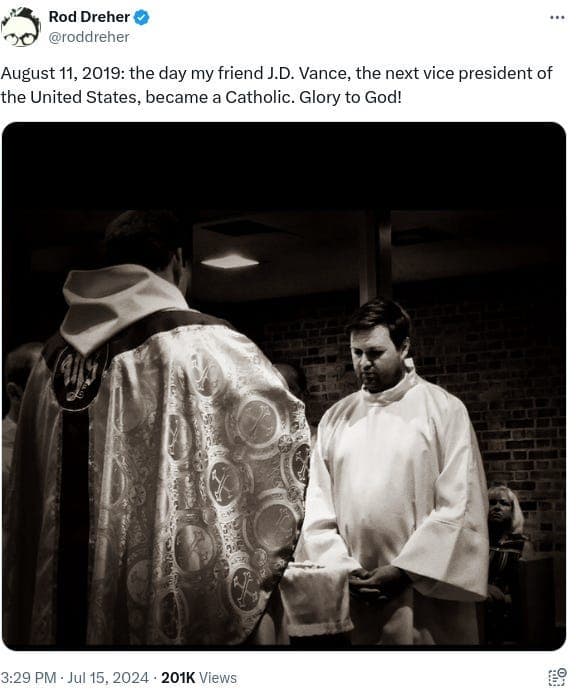Indissoluble Marriage Doctrine Central to JD Vance's Catholic Faith and Public Discourse

A recent tweet from Samo Burja has drawn attention to U.S. Vice President JD Vance's Catholic faith, specifically highlighting the Church's doctrine on the indissolubility of marriage and its implications for his public persona. Burja stated, "> I almost don't want to touch this strange deranged discourse. But everyone is missing something very obvious: JD Vance is a believing Catholic. He can't divorce. The alpha Protestant life script doesn't apply." This comment underscores the distinct theological framework guiding Vance's personal and political views.
Vance, who was raised in a loosely evangelical Christian tradition and identified as an atheist for a period, converted to Catholicism in 2019. His journey to Catholicism was influenced by intellectual pursuits, including the writings of Saint Augustine and discussions with conservative Dominican friars. He has publicly stated that his views on public policy align with Catholic social teaching, emphasizing traditional family values and a postliberal political philosophy.
The Catholic Church maintains a strict stance on marriage, viewing it as a permanent covenant between a man and a woman that cannot be dissolved by human power. According to Church doctrine, a ratified and consummated marriage is indissoluble, meaning it lasts until death. While civil divorce is recognized by law, the Church does not consider it to break the sacramental bond; remarriage without an annulment is considered adultery. An annulment, distinct from divorce, is a declaration that a valid marriage never existed in the eyes of the Church.
Vance's commitment to his faith has been evident in recent public statements, including remarks about his wife, Usha Vance, and his hope for her eventual conversion to Christianity. In November 2025, he publicly expressed this sentiment, stating, "do I hope, eventually, that she is somehow moved by the same thing I was moved by in church? Yes." Usha Vance, who is Hindu, has publicly affirmed her intention not to convert, noting their children are being raised with access to both Christian and Hindu traditions.
This public discourse surrounding Vance's faith and family life highlights the intersection of personal belief and political identity. Burja's tweet suggests that Vance's Catholic adherence to indissoluble marriage sets him apart from a perceived "alpha Protestant life script," which might offer different perspectives on divorce and remarriage. The ongoing discussion reflects broader societal conversations about religious influence in public life and the diverse interpretations of faith within American politics.